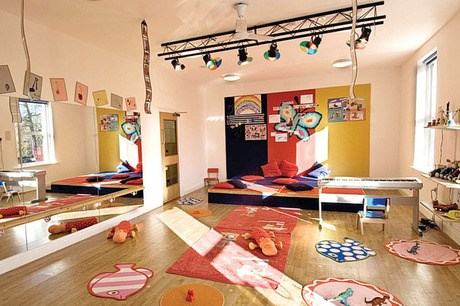Fees to rise as ‘living wage’ hits hard
Monday, January 25, 2016
Nurseries are considering fee rises of up to seven per cent to help pay for the new ‘living wage’, according to property expert Courteney Donaldson.

Nurseries are considering fee rises of up to seven per cent to help pay for the new ‘living wage’, according to property expert Courteney Donaldson.
The head of childcare at Christie and Co said that while the nursery market is buoyant, with an increase in sales of 12 per cent on last year, and freehold assets regularly topping the £1m mark, more expensive childcare is a ‘foregone conclusion’.
‘From the conversations I am having, nurseries see no alternative. Expenditure will go up so income has to increase. It seems to be between 6 and 7 per cent, with some doing it in two stages.
‘Quite a few nurseries are waiting for March, when there will be media coverage of the national living wage, to speak to parents about their intentions.’
According to the National Day Nurseries Association, the national living wage will force total payrolls up by 10 per cent from this April – leaving a substantial shortfall if fees rise by around 7 per cent.
Speaking at the launch of the property firm’s Business Outlook report 2016, Ms Donaldson said providers were evenly split between those seeing the 30 hours of funded childcare as a threat and those who view it as an opportunity. ‘Operators that have large capacity settings – maybe 60-plus places – are more positive than those that have 30- to 40-place nurseries. Larger nurseries are better able to cover overheads and operating costs.’
She added that the majority of activity last year was single asset sales, often of sub-45-place settings, particularly in the second half of the year. ‘There has been an increase in people who are wanting to retire [and sell]; people who have been in business for 20 to 30 years. They might be thinking of the national living wage/30 hours, though they are not saying so to us.’
Buyers are calculating if salary rises have been factored in to profits ahead of the change, though this had not resulted in a lack of interest or slowdown in market growth, she said.
Kids Planet, Busy Bees and Bright Horizons spent big last year
While the 30 hours (which will be fully introduced by September 2017) was still too far off, with uncertainty over rates, for many childcare businesses to be sure of their plans, some nurseries were considering expanding now.
‘Banks continue to be very supportive of expansion,’ said Ms Donaldson. ‘Nurseries continue to be seen as secure, driven by demand and population growth. Banks are aware of the 30 hours and national living wage from an investment perspective. It is our understanding that the Government is consulting with the banking community to support access for providers wanting to expand.’
Regional operators experiencing significant growth include Mama Bear’s, which operates in the South West and has gone from 18 settings in 2013 to 22 with further plans to expand; and Manchester- and Cheshire-based Kids Planet, which bought three-setting chain Liverpool Day Nurseries last June (pictured below).

These are both ‘groups who are focusing on establishing themselves as the dominant provider in a single region’, Ms Donaldson said. ‘There will be some increase in regional groups wanting to buy other regional groups’ to cement their position, she added.
As well as these smaller-scale deals, ‘this year we will see significantly more group sales then we saw in 2014’, she said. The biggest group deal of last year was in December, when number-one chain Busy Bees acquired 13-setting Kids 1st (which has topped the Nursery World quality rankings for the past five years).
The move means Busy Bees, which will shortly release a list of target areas for expansion, now has 251 nurseries. The company said it viewed the acquisition as an opportunity to break into the North East. In February, it also made headlines with the acquisition of 60 nurseries in Singapore and Malaysia.
Rival chain Bright Horizons (with 207 settings) acquired Active Learning’s nine settings in another major deal in July last year, while Asquith and Bertram also made acquisitions.

Active Learning, pictured, is now part of Bright Horizons
Overall, 2016 will see a more diverse market, with first-time buyers also re-entering the mix in order to take advantage of more favourable lending conditions than existed during the recession, the report says.
It also predicts that this year, an overseas operator – probably in the childcare or education field – will make a ‘significant’ UK acquisition. Ms Donaldson said overseas buyers ‘won’t want to come and buy one nursery. They are looking at all of the regional groups with a strong leadership and management team all in place as a platform to enter the market.’
Other buyers include private equity firms, whose interest remains ‘incredibly strong’ – up to a third of buyers on a shortlist could be private equity firms or other types of private investor.
The £30m deal between Just Childcare and Phoenix Equity Partners, which has enabled the chain to leapfrog its market position from seven settings to 21 in less than a year, will make ‘other private equity groups think [that they] need to look at the sector again’, Ms Donaldson said.




